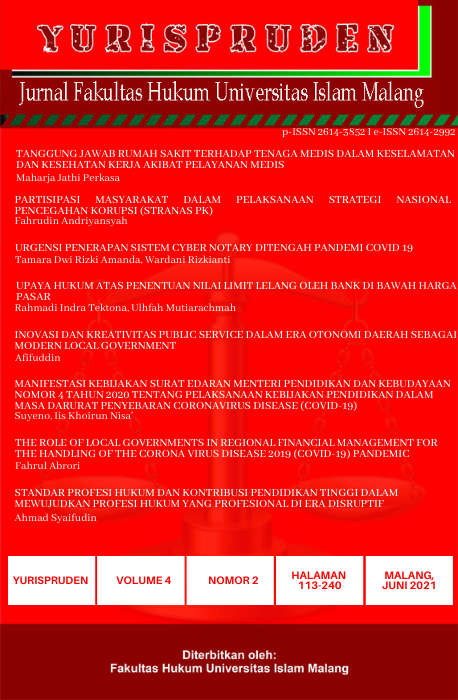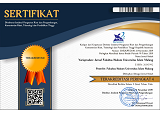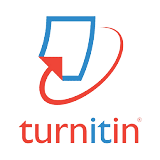MANIFESTASI KEBIJAKAN KEMENNDIKBUD NOMOR 4 TAHUN 2020 TENTANG PELAKSANAAN KEBIJAKAN PENDIDIKAN DALAM MASA DARURAT PENYEBARAN CORONAVIRUS
DOI:
https://doi.org/10.33474/yur.v4i2.11239Keywords:
Education, Coronavirus Disease (Covid-19), SocietyAbstract
The growth of science and technology continues to accelerate enormously, technology advances not just years, months or days but hours, even minutes, primarily relating to information and communication based on online media and communication. The effects of the development of science and technology are widespread in many areas of life. In the development of technology, there are both negative and positive effects. The country's development goal, or the public ministry, has been referred to in the opening of the national development act to protect the entire nation and the whole of Indonesia, promote public welfare, clean up its life and contribute to world peace. The number 20 years of 2003, section 1 of the national education system states that education is a conscious and planned effort to bring about the learning and learning environment in order to enable learners to actively develop their own potential, but thus in the universe was jolted by the covid-19 pandemic. The ministry of education and culture of the republic of Indonesia has issued a 2020 bill number 4 on implementing education policies in emergency deployment of coronavirus disease (covid-19) at the second point in the home-learning process. The role of parents is crucial in the development of learners,  the community / parents participate in accompanying and supporting all efforts in the field of education. This pandemic is an important factor in the sustainability of the online learning process. Education is a process to increase dignity by having the potential of self, intelligence and interest in talents in accordance with the ability of learners. Students also have a positive impact on the development of developed nations, education needs to anticipate global competition in the field of science and technologyReferences
Surat edaran Nomor 4 Tahun 2020 peraturan tentang pelaksanaan kebijakan pendidikan dalam masa darurat penyebaran Coronavirus Disease (Covid-19) poin ke 2 yaitu proses belajar dari rumah
Undang-Undang Nomor 20 Tahun 2003 tantang Pendidikan
Undang-Undang Nomor 25 Tahun 2009 tentang pelayanan publik
Undang-Undang Nomor 39 Tahun 1999 tentang Hak Asasi Manusia pasal (12)
Persesjen Kemendikbud Nomor 14 tahun 2020.
Jamil Suprihatingrum, (2013), Guru Profesional, Ar-Ruzz media, Yogyakarta, hal 75
W. Riawan Tjandra, SH ., M.Hum, (2005) “Peningkatan Kapsitas Pemerintahan Daerah Dalam Pelayanan Publik “, Pembruan hal.55
Siagian, Sondang P. 2014. Filsafat Administrasi. Jakarta: Bumi Aksara
Subarsono. 2005. Analisis Kebijakan Publik. Yogyakarta:Pustaka Belajar
Sudiro.2018. Evaluasi kebijakan Pendidikan, Teori Konsep, dan implemntasi dalam pengelolahan bantuan operasional sekolah. Yogyakarta: Hikam Media Utama.
Bambang Tejokusumo, (2014), “Dinamika Masyarakat Sebagai Sumber Belajar Ilmu Pengetahuan Sosialâ€, Geodukasi, Vol III No 1, 2014, hal 38. Diakses 28 Mei 2020, 09.10
Arnesi, Novita dkk. 2015. Penggunaan Media Pembelajaran Online-Ofline dan Komunikasi Interpersonal terhadap Hasil Belajar Bahasa Inggris. Jurnal teknologi informasi & komunikasi dalam pendidikan. Vol 2. Nomor 1 Juni 2015
Handayani, Lina. 2020. Keuntingan, kendala dan solusi pembelajaran online selama pandemi Covid-19 studi pada SMPn 3 Bae Kudus. Jurnal industrial engineering dan management research (jiemari). Vol 1 No 2 Juli Tahun 2020












